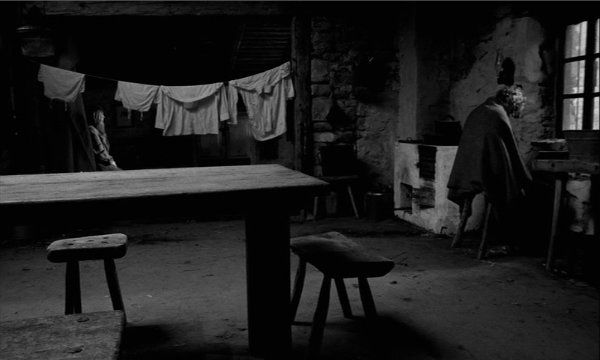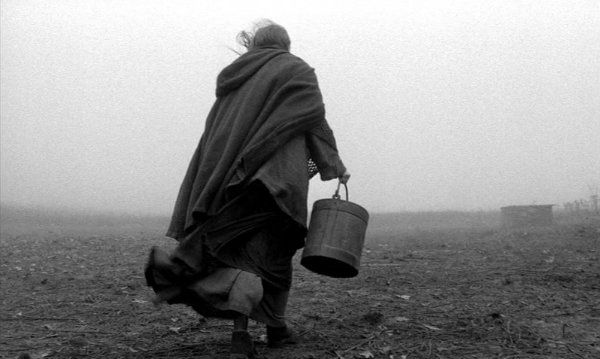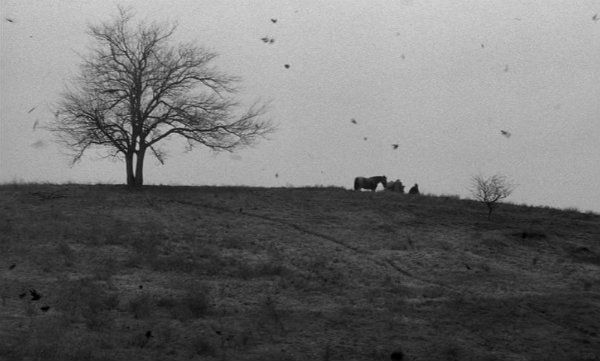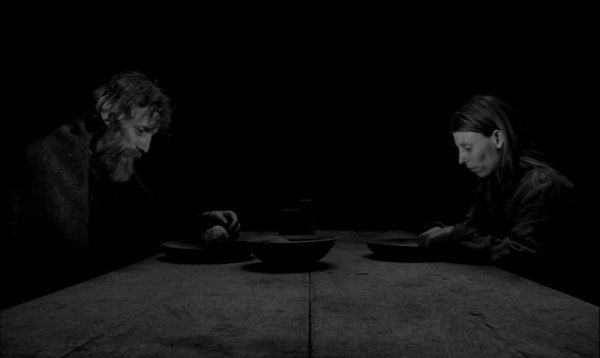



Set in a barren landscape in an unrelenting windstorm, Turin Horse follows the daily routine of a bearded man and his daughter in almost real time (or at least it feels like one): they get up- the woman first, who puts on layers upon layers of clothes, then helps her father who seems suffered a stroke (his right arm is limp) get dressed, walks through the gale to get water from the well outside the house, boils a couple of potatoes, then they proceed to eat, then stare out the window or the lamp for hours on end then go to sleep. Repeat. Again. Again. Their mangy horse refuses to work or eat. Then their well dries out over night. They have to move, so they pack, leave with the horse in tow, then come back, probably because of the horse wouldn't budge, or there isn't anywhere left to go. Then the oil lamp wouldn't light even though it's full. What does all this mean?
What is said to be Bela Tarr's last film, Turin Horse is a bleak vision of apocalypse. The preface of the film explains Nietzsche's breakdown and decline after seeing a horse being thrashed and throwing his arms around the beast and sobbing. The Beast of Burden. Very Biblegorical. Very Bresson.
The old man's neighbor visits him, informing the town in ruins- 'the wind swept it away. And there is no god or gods, therefore we don't exist either'. A band of marauding gypsies visit them for water, only to be shooed away. With his typical long takes and sparse dialog, Tarr paints humanity's end in grim silence. But I feel that its glacial pace and two and a half hour running time are not really warranted, for there is less visual poetry here.
No comments:
Post a Comment